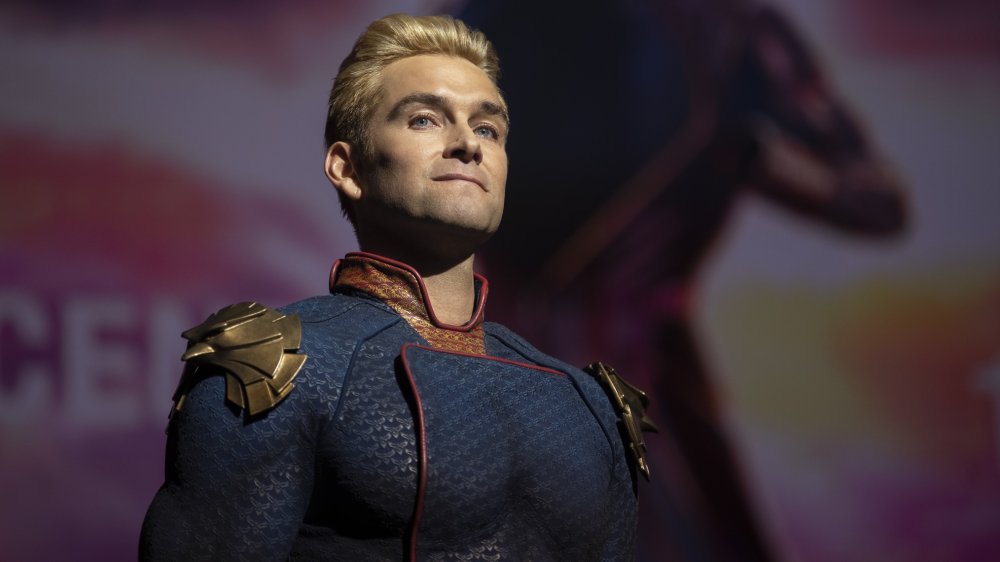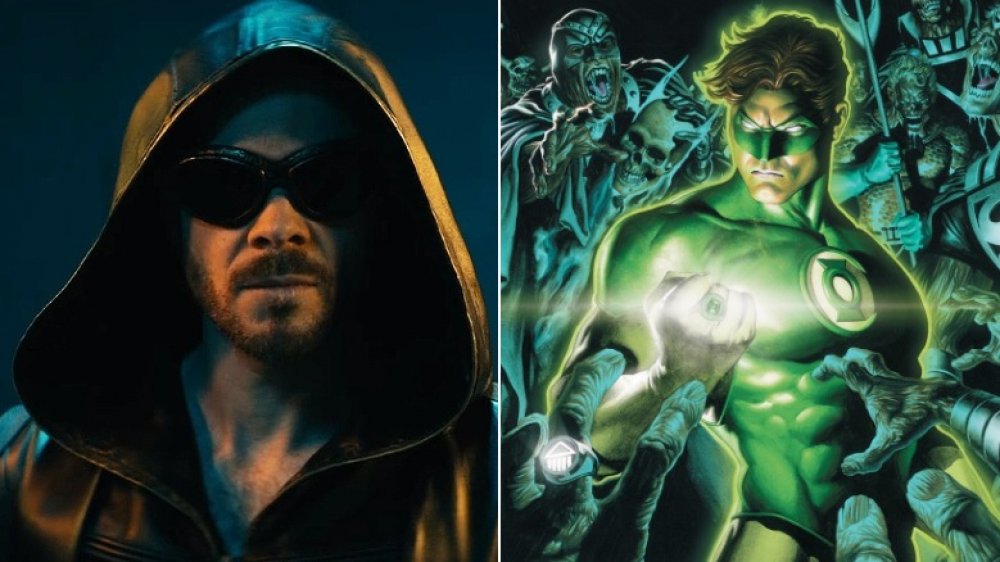The Subtle DC Comics Nod You Missed In The Boys Season 2
It's no secret that superhero stories draw inspiration from one another. That inspiration can be subtle, but it's often blatant — like when creators try to replicate the success of Superman with barely veiled versions of the hero, or how Spider-Man basically became the blueprint for the "hero with personal problems" archetype.
Amazon Studios' The Boys is no less secretive in the template it uses: Superhero team the Seven is very obviously based off the Justice League. By establishing that similarity, it's easy to compare, say, Queen Maeve (Dominique McElligott) and Wonder Woman, and wonder how thin the line is between the two characters. Could the latter's soul shatter as the former's does? Thinking about the heroes we love breaking like that amplifies the impact that the imperfect heroes of the Seven have as characters.
Setting all that up also makes subtle references — blink-and-you-miss-it nods to other superhero stories — twice as impactful. There's one reference in particular that's extremely easy to miss if you're not paying close attention.
The Lamplight and the Lantern
On episode 7 of The Boys season 2, Homelander (Antony Starr) mentions all the movies he's made as America's golden boy. There are a bunch, but two of them stand out among the rest: Darkest Day and Brightest Night. To any DC Comics fan worth their salt, the reference should click in immediately, and even the less comics-savvy may recognize where it's from: the Green Lantern comics.
Many DC characters have taken the mantle of Green Lantern over the years, but all who do must recite the following oath when recharging their Power Ring: "In brightest day, in blackest night, no evil shall escape my sight. Let those who worship evil's might, beware my power — Green Lantern's light!" The Homelander films just switch around the wording a bit, and voilà. It works both as a quick little DC reference and as an allusion to Homelander's true, twisted nature.
There are also two interconnected Green Lantern storylines with the titles Blackest Night and Brightest Day, both penned by DC Comics legend Geoff Johns. That they touch on the subject of death so intimately and involve long-time enemies teaming up is yet another reason why the reference works for The Boys, a show rife with death and tense alliances.
The reference also makes sense for one final reason: Lamplighter (Shawn Ashmore), a former member of the Seven, is based off of the Green Lantern mythos. Character-wise, it's hard to compare Lamplighter to any single Green Lantern, but power-wise, the parallel is clear, as both can manipulate energy (fire, in Lamplighter's case) to their liking. Without spoiling anything, episode 7 of The Boys' second season is a significant one for Lamplighter, so there was no better time for Homelander to wink at DC.
Of course, the question now becomes this: How many other comics references are peppered throughout The Boys? First person to find them all gets to meet Homelander.

